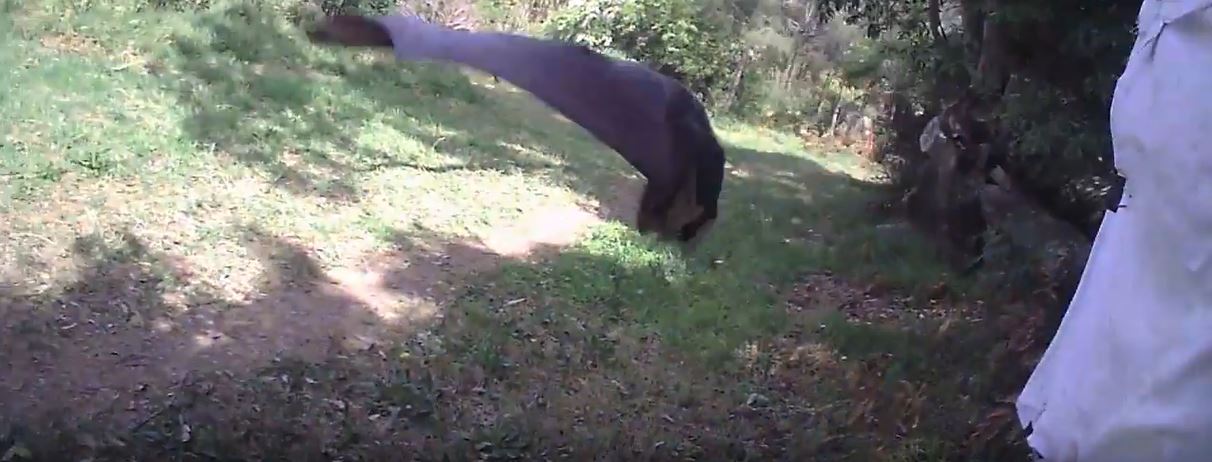Bat Repellent

Although they usually aren't aggressive unless provoked, bats can pose a serious problem when you have them on your property. Bat guano is known to be a breeding ground for the fungus that causes a lung infection known as histoplasmosis. Bats may also transmit rabies in some cases or several other diseases. With all these risks and the potential damage that bat urine and guano can do to your home, it makes sense to take steps to repel bats from your property. There are numerous repellents to choose from, making many people wonder whether some are more effective than the others.
Do They Work?
The very first thing you have to ask yourself about a bat repellent is whether it is effective. Unfortunately, the vast majority of the will not give you positive results as bats will simply ignore them. In the case of a repellent that does produce some results, they will be minimal and the repellent will need to be reapplied regularly as it fades or evaporates as well as after every rainfall. That being said, there is no harm in trying some of the natural repellents and you should at least be familiar with your options.
Commercial Repellents
There are several sprays that you can find in stores and online which claim to repel bats. As mentioned earlier, these are typically not very effective and in some cases, they may even contain harmful chemicals. That means that using these sprays not only wastes your money, but it also exposes you and your loved ones to toxins.
Mothballs Or Naphthalene
Among homemade bat repellents, mothballs or naphthalene are a frequent suggestion. Some people claim to have noticed results with this item, but numerous experts have stories of people using 50 pounds or more of mothballs and still having bats present in their homes. In addition to not being very effective, mothballs are also dangerous as many people are sensitive to them and notice irritations. They have also been linked to certain health conditions when humans are exposed to them, putting the risks of using this repellent above the benefits.
Other Natural Remedies
There are numerous other natural remedies that people claim work to repel bats. These include things you probably already have in your kitchen, like green tea, peppermint, and cinnamon. Others suggest collecting the loose hair from your hairbrush and spreading that or spraying urine from a predator, such as coyotes. The idea is that each of these items has a smell that irritates or threatens bats, encouraging them to stay away. Experts, however, will tell you that these methods are usually as ineffective as the other ones mentioned above. The only benefit of opting for one of these natural remedies is that you do not have to spend a lot of money and are not exposed to chemicals or toxins.
Ultrasonic Noise
Numerous companies market ultrasonic noise machines to keep away bats. The idea is that because bats have excellent hearing, these machines produce a continuous sound at a high pitch that they will hear but humans will not. This sound should be so disruptive and annoying that the bats choose to make their roost somewhere else. There are two issues with these machines: bats typically aren't annoyed by the sound or simply choose to ignore it and in some cases, humans can actually hear the sounds and become irritated by them.
Bright Lights
Because bats are nocturnal creatures, a commonly suggested bat repellent is to turn on bright lights on your property and this method does sometimes work to some extent, although it is never completely effective. The issue, however, is that bats are smart enough to quickly enter their roosting area and avoid the lights. Additionally, the lights may attract mosquitoes or other insects that the bats feed on. This means that if the lights work, you will be left with a swarm of mosquitoes and if they don't, you will simply be providing the bats with a more immediate food source.
What To Do Instead
If repellents don't work, then you may be wondering what you should do to keep bats away from your house and yard. While it is challenging to keep them off your lawn or trees, it is fairly straightforward to prevent bats from entering your home. You simply have to seal up every single possible entrance to your home. Bats can fit into very small spaces so conduct a thorough inspection of your house and seal any gap or crack you find. Pay special attention to loose roof tiles and gaps around vents or chimneys. You can do this yourself, but many people find it helpful to hire a professional to conduct the inspection and seal the holes as they will know exactly what to look for and be comfortable working on a ladder.
Read the How to get rid of bats page for helpful information and to learn more about Bat Repellent

